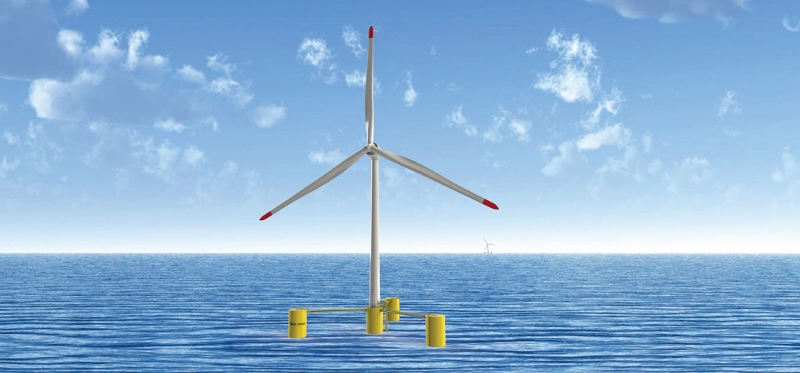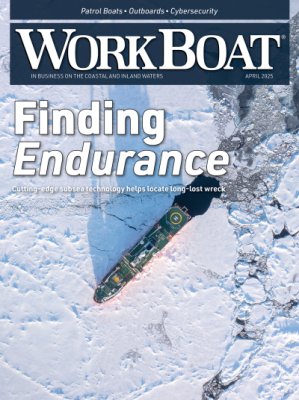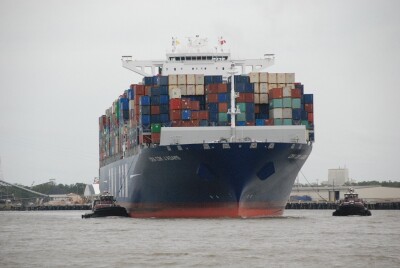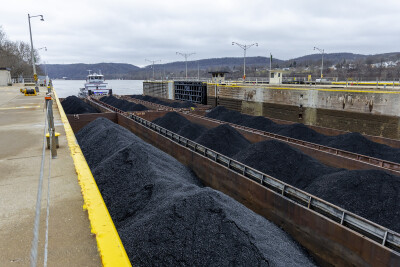Gulf of Maine fishermen this week asked three New England governors and federal officials for a six-month delay in planning for offshore wind energy development in those waters, as the seafood industry grapples with the upheaval of coronavirus.
In deeper waters of the gulf, wind power will be achieved only with the use of floating turbines. The extensive anchoring and cabling that would be required means “lease areas will become de facto closures to fishing,” the Responsible Offshore Development Alliance wrote in an April 14 letter the governors of Maine, New Hampshire and Massachusetts, and the federal Bureau of Ocean Energy Management.
“Technology is evolving to minimize the footprint of the base of an offshore wind platform, but current proposed technologies still have mooring lines and flexible cabling that will make any type of fishing – fixed or mobile gear – incredibly unlikely within a wind energy area.” According to the alliance, a coalition of fishermen, coastal communities and related businesses.
Meanwhile, “the fishing industry has been hit especially hard by the pandemic, forcing the commercial fishing sector to divert time and effort to addressing the current crisis, and leaving insufficient opportunities for engagement in offshore wind siting and other planning,” the alliance said in a news release accompanying the letter. “A six-month pause would not only demonstrate good faith to the fishing industry, but also allow for additional research on offshore wind’s impact on marine ecosystems and better data sharing that will benefit offshore development moving forward.”
The Bureau of Ocean Energy Management is already in the midst of a pause for permitting the Vineyard Wind offshore energy project in southern New England waters, a decision that took wind developers by surprise when it was announced in August 2019.
Spurred by doubts raised by NMFS’ Greater Atlantic regional office. Interior Secretary David Bernhardt called for a delay in issuing an environmental impact statement for Vineyard Wind, while BOEM takes a look at both it and the broader, cumulative maritime and environmental impacts of up to 15 wind developments proposed off the East Coast.
BOEM’s work plan now calls for that fact-finding to be completed in June, with analysis and a final impact statement by mid-December. Critics contended the earlier Vineyard Wind studies gave insufficient attention to fisheries impacts.
There are the same gaps in ocean science that need to be addressed before the states and federal government plan for new wind energy areas in the Gulf of Maine, the alliance says.
But wind power has a more favorable political climate now. The Maine Fishermen's Forum in early March featured for the first time a full day of seminars on the potential for offshore wind development in the gulf and its impact on fisheries.
In its letter the Responsible Offshore Development Alliance group lays out three additional requests.
The states and BOEM should “convene a fisheries-driven GOM (Gulf of Maine) regional working group to fully participate in the offshore development process,” according to the letter. “Vessels home-ported in Maine, New Hampshire, and Massachusetts all fish in the GOM and have unique spatial and operational needs, and complementary understanding of the ecosystem there.
“Fragmenting the region’s fishermen into state groups (which can be entirely arbitrary for those with federal fishing permits) puts too much pressure on them to follow every meeting and engagement opportunity in each state,” the letter explains. “Experience in other regions has indicated that a regional group, convened and led by the industry, will be the only fair and equitable way for commercial fishing concerns to be properly addressed.”
BOEM should not consider any unsolicited lease bids from offshore wind developers because those can “circumvent sufficient and comprehensive engagement with other users, especially fishing communities,” the letter says.
Finally, the state and federal governments should provide “greater transparency in offshore wind procurement goals and their context within an overall energy strategy,” the letter states. “A more open exchange of information on the relative availability, price, and environmental impacts of all existing and potential energy sources for the region will be beneficial” to determining the future of the Gulf of Maine, it concludes.





